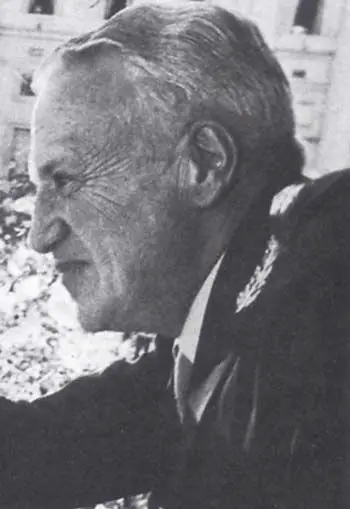 |
Leopoldo Galtieri was the senior member of the military junta that governed Argentina at the time of the Falklands War in 1982. Galtieri to all intents had the power of a president but it was the military defeat over the Falklands that cost Galtieri his position of power.
Galtieri came from a working class family with an Italian background. He was born on July 25th, 1926. Aged 17, Galtieri joined the Argentinean army where he specialised in engineering. At an early age, he gained a reputation for believing that all territorial disputes could be resolved by using force. Galtieri became a combat engineer and in 1975 he was appointed commander of the Argentine Engineering Corps. In 1976, the military took over Argentina – a coup that Galtieri enthusiastically supported. By 1980, he was the army’s commander-in-chief with the rank of lieutenant general.
Argentina suffered the classic results of a military coup – repression, trade unions banned, freedom of speech ended, opponents dealt with etc. The campaign by Galtieri against people perceived as communists went down well in Washington DC and Ronald Reagan saw the military junta as a bulwark against the spread of communism in South America. Galtieri was even described as “majestic” by the American government. In December 1981, Galtieri was sufficiently powerful to remove rival generals from the junta. He also became de facto president by ousting Roberto Viola. Galtieri kept his position as commander in chief.
As head of his country, Galtieri introduced a number of reforms. The economy took a slight turn for the better by the introduction of classic monetarist measures – government spending was cut, government-owned industries were sold off and salaries were frozen. A limited relaxation was allowed on personal freedom. These quickly spiralled and anti-government demonstrations became common.
What Galtieri needed was something that would unite the country behind him, take the sting out of the calls for reform and play on the traditional patriotism of the Argentinean people. The ownership of the Falkland Islands had always been an issue in Argentina – a successful taking of the islands would, so Galtieri gambled, unite and rally everyone behind him. So it proved to be.
On April 2nd, 1982, Argentine Marines occupied Port Stanley and within days thousands of Argentine troops had landed at the capital’s airport. There were joyous celebrations in Argentina and to Galtieri it must have seemed that his gamble had been successful especially as he believed that London had little interest in the islands. The man seen as the person who had spearheaded repression against his own people was now seen as a national hero.
In June 1982, the British had retaken the Falklands and Galtieri’s fall from power was swift and decisive. He was retired to a well-defended country retreat and held under house arrest. In 1983, Galtieri was tried in a military court for human rights violations and the mismanagement of the Falklands War. He was cleared of human rights abuses but found guilty, with others, of mishandling the war. He appealed to a civil court. In May 1988, the guilty verdict was upheld and Galtieri was sentenced to five years in prison. He was also stripped of his rank.
In 1991, Galtieri received a presidential pardon from Carlos Menem. In July 2002, he was charged with more human rights offences and placed under house arrest. However, he was not a well man. Galtieri was admitted to hospital with cancer where, aged 76, he died of a heart attack on January 12th, 2003.